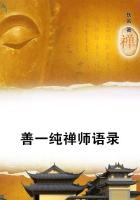(November 1824.)
This is a book which enjoys a great and increasing popularity:
but, while it has attracted a considerable share of the public attention, it has been little noticed by the critics.Mr Mitford has almost succeeded in mounting, unperceived by those whose office it is to watch such aspirants, to a high place among historians.He has taken a seat on the dais without being challenged by a single seneschal.To oppose the progress of his fame is now almost a hopeless enterprise.Had he been reviewed with candid severity, when he had published only his first volume, his work would either have deserved its reputation, or would never have obtained it."Then," as Indra says of Kehama, "then was the time to strike." The time was neglected; and the consequence is that Mr Mitford like Kehama, has laid his victorious hand on the literary Amreeta, and seems about to taste the precious elixir of immortality.I shall venture to emulate the courage of the honest Glendoveer--"When now He saw the Amreeta in Kehama's hand, An impulse that defied all self-command, In that extremity, Stung him, and he resolved to seize the cup, And dare the Rajah's force in Seeva's sight, Forward he sprung to tempt the unequal fray."In plain words, I shall offer a few considerations, which may tend to reduce an overpraised writer to his proper level.
The principal characteristic of this historian, the origin of his excellencies and his defects, is a love of singularity.He has no notion of going with a multitude to do either good or evil.
An exploded opinion, or an unpopular person, has an irresistible charm for him.The same perverseness may be traced in his diction.His style would never have been elegant; but it might at least have been manly and perspicuous; and nothing but the most elaborate care could possibly have made it so bad as it is.
It is distinguished by harsh phrases, strange collocations, occasional solecisms, frequent obscurity, and, above all, by a peculiar oddity, which can no more be described than it can be overlooked.Nor is this all.Mr Mitford piques himself on spelling better than any of his neighbours; and this not only in ancient names, which he mangles in defiance both of custom and of reason, but in the most ordinary words of the English language.
It is, in itself, a matter perfectly indifferent whether we call a foreigner by the name which he bears in his own language, or by that which corresponds to it in ours; whether we say Lorenzo de Medici, or Lawrence de Medici, Jean Chauvin, or John Calvin.In such cases established usage is considered as law by all writers except Mr Mitford.If he were always consistent with himself, he might be excused for sometimes disagreeing with his neighbours;but he proceeds on no principle but that of being unlike the rest of the world.Every child has heard of Linnaeus; therefore Mr Mitford calls him Linne: Rousseau is known all over Europe as Jean Jacques; therefore Mr Mitford bestows on him the strange appellation of John James.
Had Mr Mitford undertaken a History of any other country than Greece, this propensity would have rendered his work useless and absurd.His occasional remarks on the affairs of ancient Rome and of modern Europe are full of errors: but he writes of times with respect to which almost every other writer has been in the wrong; and, therefore, by resolutely deviating from his predecessors, he is often in the right.
Almost all the modern historians of Greece have shown the grossest ignorance of the most obvious phenomena of human nature.
In their representations the generals and statesmen of antiquity are absolutely divested of all individuality.They are personifications; they are passions, talents, opinions, virtues, vices, but not men.Inconsistency is a thing of which these writers have no notion.That a man may have been liberal in his youth and avaricious in his age, cruel to one enemy and merciful to another, is to them utterly inconceivable.If the facts be undeniable, they suppose some strange and deep design, in order to explain what, as every one who has observed his own mind knows, needs no explanation at all.This is a mode of writing very acceptable to the multitude who have always been accustomed to make gods and daemons out of men very little better or worse than themselves; but it appears contemptible to all who have watched the changes of human character--to all who have observed the influence of time, of circumstances, and of associates, on mankind--to all who have seen a hero in the gout, a democrat in the church, a pedant in love, or a philosopher in liquor.This practice of painting in nothing but black and white is unpardonable even in the drama.It is the great fault of Alfieri; and how much it injures the effect of his compositions will be obvious to every one who will compare his Rosmunda with the Lady Macbeth of Shakspeare.The one is a wicked woman; the other is a fiend.Her only feeling is hatred; all her words are curses.We are at once shocked and fatigued by the spectacle of such raving cruelty, excited by no provocation, repeatedly changing its object, and constant in nothing but in its in-extinguishable thirst for blood.














